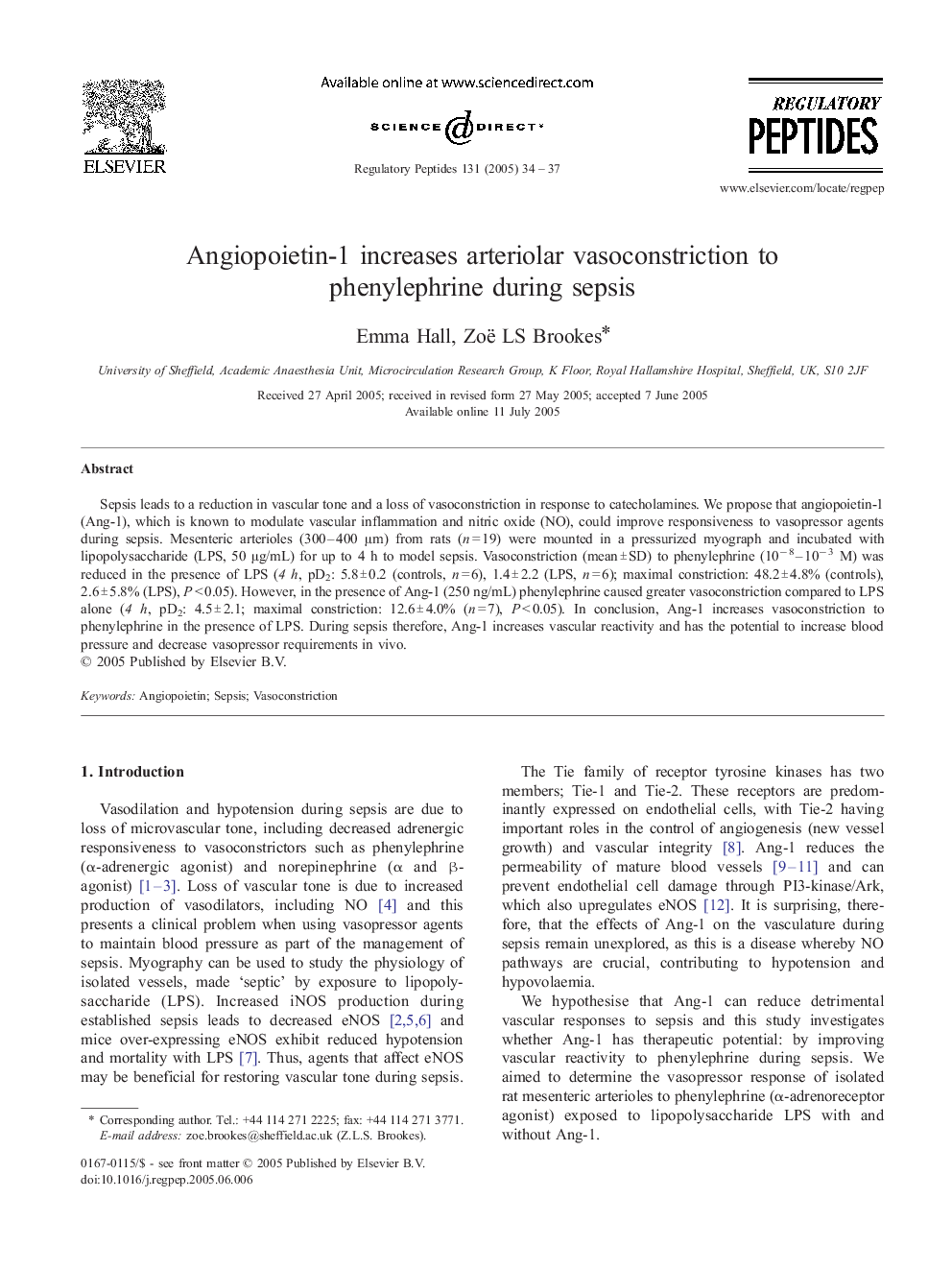| Article ID | Journal | Published Year | Pages | File Type |
|---|---|---|---|---|
| 9894366 | Regulatory Peptides | 2005 | 4 Pages |
Abstract
Sepsis leads to a reduction in vascular tone and a loss of vasoconstriction in response to catecholamines. We propose that angiopoietin-1 (Ang-1), which is known to modulate vascular inflammation and nitric oxide (NO), could improve responsiveness to vasopressor agents during sepsis. Mesenteric arterioles (300-400 μm) from rats (n = 19) were mounted in a pressurized myograph and incubated with lipopolysaccharide (LPS, 50 μg/mL) for up to 4 h to model sepsis. Vasoconstriction (mean ± SD) to phenylephrine (10â 8-10â 3 M) was reduced in the presence of LPS (4 h, pD2: 5.8 ± 0.2 (controls, n = 6), 1.4 ± 2.2 (LPS, n = 6); maximal constriction: 48.2 ± 4.8% (controls), 2.6 ± 5.8% (LPS), P < 0.05). However, in the presence of Ang-1 (250 ng/mL) phenylephrine caused greater vasoconstriction compared to LPS alone (4 h, pD2: 4.5 ± 2.1; maximal constriction: 12.6 ± 4.0% (n = 7), P < 0.05). In conclusion, Ang-1 increases vasoconstriction to phenylephrine in the presence of LPS. During sepsis therefore, Ang-1 increases vascular reactivity and has the potential to increase blood pressure and decrease vasopressor requirements in vivo.
Keywords
Related Topics
Life Sciences
Biochemistry, Genetics and Molecular Biology
Biochemistry
Authors
Emma Hall, Zoë LS Brookes,
